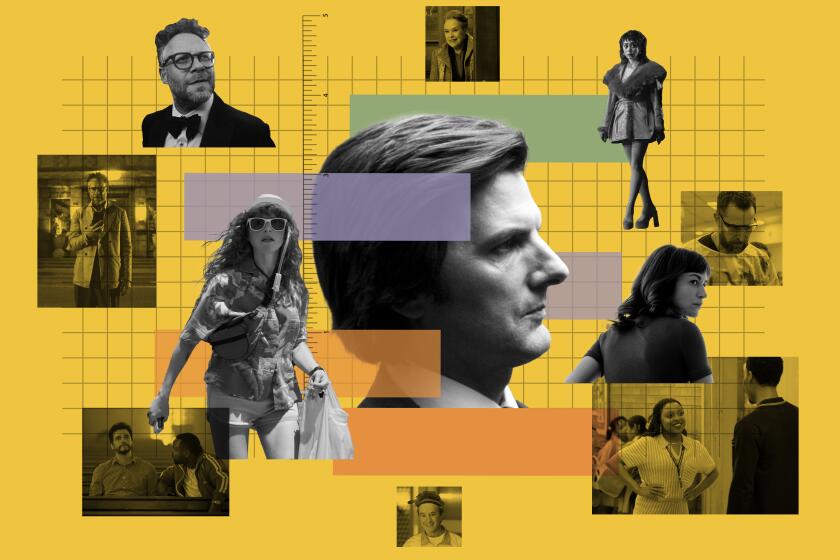Getting dialogue started on violence not easy, ex-CBS exec says
- Share via
In the aftermath of the tragic shooting in Newtown, Conn., there is a lot of attention being focused on the issue of gun control.
There are also rumblings about the role the entertainment -- movies, television and video games -- have played in coarsening our culture and desensitizing the country to violence.
But just as the gun industry and the National Rifle Assn. like to divert the discussion away from new laws that could limit the availability of certain weapons, the entertainment industry is also often loathe to consider whether it has a contributing role in our culture of guns and violence.
For example, director Quentin Tarantino took the company line when asked about the issue while promoting jis new blood-filled film “Django Unchained.”
“I just think, you know, there’s violence in the world, tragedies happen, blame the playmakers,” he said.
Interestingly, Jamie Foxx, the star of “Django Unchained,” had a different take in one of his interviews hyping the movie.
“We cannot turn our back and say that violence in films or anything that we do doesn’t have a sort of influence,” Foxx said to the Associated Press.
On Thursday, Motion Picture Assn. of America Chief Executive Chris Dodd, said in a statement that, “those of us in the motion picture and television industry want to do our part to help America heal. We stand ready to be part of the national conversation.”
Of course, some of the most violent television shows such as AMC’s “The Walking Dead” and HBO’s “Game of Thrones” are also the most loved by many critics. Fox has a highly anticipated drama coming on soon called “The Following” about a cult of serial killers that is very gory.
That makes discussing the role entertainment can play -- even if it is a small one -- in shaping culture a challenge.
Jim McKairnes, who was a senior vice president of program planning and scheduling at CBS and later a development executive at CBS Television Studios, acknowledged in an interview with Company Town that having a serious talk on the subject is no easy task.
“I was never so naive when I worked at CBS as to think I was part of a nonprofit think thank or public-advocacy group,” said McKairnes. “But in that I was surrounded there for so long by seemingly smart, well-intentioned people, I always landed somewhere between surprised and disappointed when it came to the lack of discussions about our role in the use of the public airwaves or our effect on viewers.”
McKairnes who is an adjunct professor at DePaul and author of the book “103 Ways to Get Into TV (By 102 Who Did, Plus Me)” is not a bitter executive taking shots at his old bosses. However, he would like to see more serious discussion about the shows that go on the air and their role in shaping our culture.
After the Columbine High School massacre, McKairnes said he pitched the idea that CBS devote a week’s worth of programming to the “general idea of violence in America.” Shows would find their own way to address the issue but the thought was to start a dialogue. It was not unprecedented, networks have used shows to discuss drug use and drunk driving.
“I got sympathetic nods and ‘yeah-we-should’ but nothing came of it.”
The show that really got under McKairnes’ skin was the CBS drama “Criminal Minds,” which is notorious for its portrayals of violence against women. USA Today critic Robert Bianco once wrote of a particular episode of “Criminal Minds” that it “plays like a how-to guide for sexual predators.”
McKairnes said he raised objections to the show, which were dismissed. But when CBS was preparing to present the program to advertisers in its annual upfront presentation, one network executive warned about showing too much violence in the trailer.
“I asked why and was told the advertisers would ‘freak’ at it,” he said. When McKairnes wondered why it was unacceptable to show advertisers but fine with viewers, “this particular executive laughed at what I presume was my naive windmill-tilting and walked off.”
McKairnes recalled in 2005 when CBS Entertainment President Nina Tassler was asked at a news conference about the level of violence on television in general
“We look to the audience to tell us when they’ve had enough,” Tassler said.
As Tassler answered the question, McKairnes said he sat in the back of the room and wondered “why we in TV as a whole always seem to wait for the ratings to come in before we do anything about what we air.”
ALSO:
NRA chief says Hollywood plays part in violence
Hollywood reflects on role in wake of Aurora shooting
Bob Costas fears gun culture but other NBC shows cater to it
Follow Joe Flint on Twitter @JBFlint.
MORE
INTERACTIVE: TVs highest paid stars
INTERACTIVE: YouTube’s viral videos of 2012
PHOTOS: Hollywood back lot moments
More to Read
Sign up for The Envelope
Get exclusive awards season news, in-depth interviews and columnist Glenn Whipp’s must-read analysis straight to your inbox.
You may occasionally receive promotional content from the Los Angeles Times.











